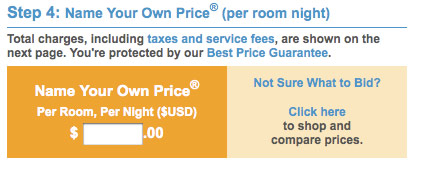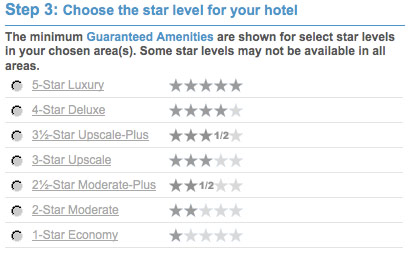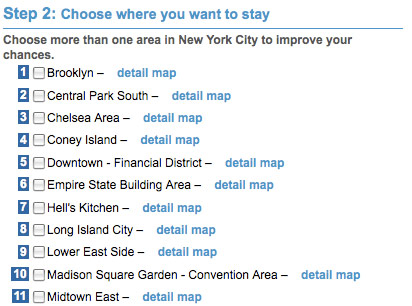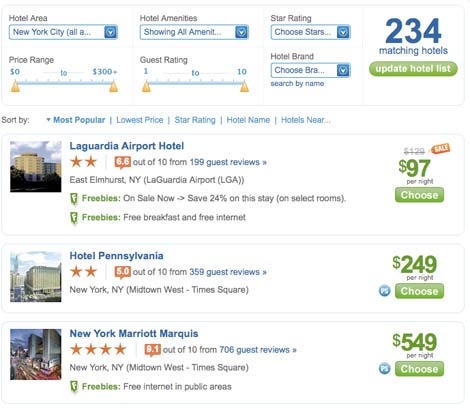For a lover of travel, the best thing Europe has to offer is having a completely different culture nearly at your fingertips…traveling from country to country in Europe requires less financial investment and often less time than traveling from state to state in the United States.
More affordable European travel is mostly due to a fairly robust train system, and incredibly low-cost airlines (low-cost as in, flying to Paris from Milan for $20). Airfares from low-cost airlines such as EasyJet, RyanAir, and WizzAir are, at face value, a traveler’s dream, made possible by the groundbreaking “Open-Skies Treaty” in 1992, removing government restrictions on airspace.
The chance to fly throughout Europe at discount prices offers a lot of opportunity for the seasoned traveler with energy, patience, and time to spare. But the reality for the rest of us is that there’s a lot of expense, time, and effort that is in excess to the advertised discount airfares, which can be especially aggravating to the inexperienced traveler.
RyanAir, the king of low-cost airlines, topped Zagat’s list as the #1 worst airline in the world, receiving a measly score of 4.16 out of 30 possible points in customer feedback surveys. On the bright side, at least you’ve been forewarned. As a British expat said to me recently, “Well, at least RyanAir is number one in something.”
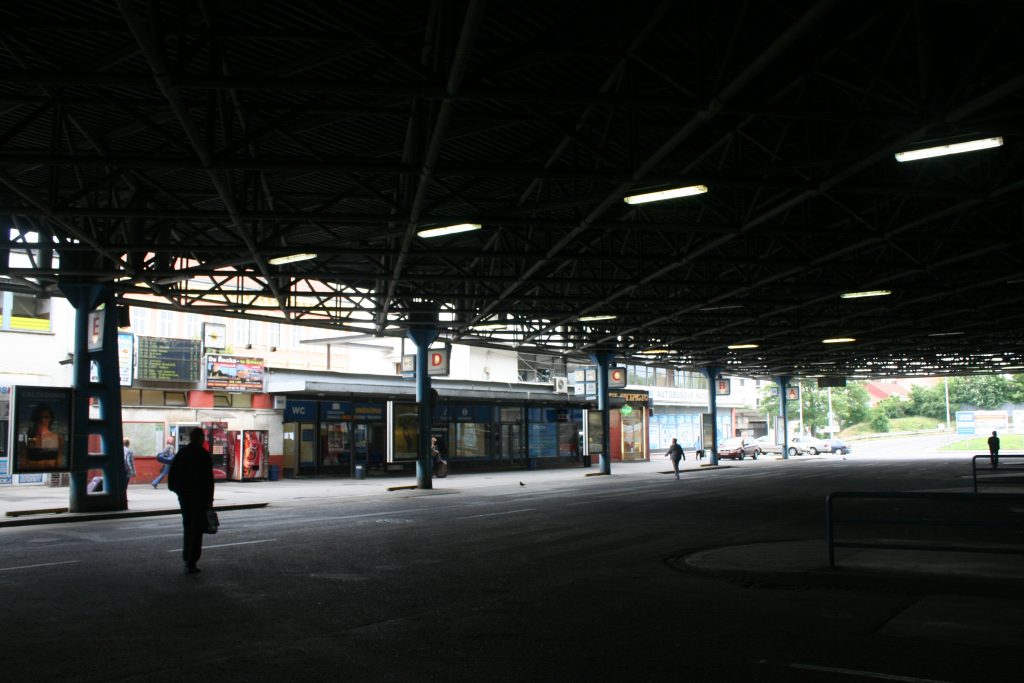 All that being said, on a recent opportunity to meet a friend in Prague and faced with the choice of a 125 euro round-trip RyanAir flight to Prague from a small airport 3 hours by train or car from where I live in Bologna, or a 15 hour bus ride, I chose the bus.
All that being said, on a recent opportunity to meet a friend in Prague and faced with the choice of a 125 euro round-trip RyanAir flight to Prague from a small airport 3 hours by train or car from where I live in Bologna, or a 15 hour bus ride, I chose the bus.
Here’s why:
1. Hidden airline fees
While baggage, beverage, and snack fees have become an industry wide standard, discount airlines take these fees to another level.
- BAGGAGE FEES
Easyjet, for example, allows one carry-on and only one, so ladies, that means you either save room in your carry-on for your purse, or you’re going to be charged a baggage fee. While RyanAir seems to be “generous” with their carry-on policy permitting a small bag as well as a regular carry-on, they instead search for other, more unexpected ways to extract money out of you. For instance, if you don’t pay for your baggage online in advance of getting to the airport, they charge you a much higher baggage fee (I paid 100 euro for my bag when flying on RyanAir from Milan to Stockholm). - “PRINT YOUR TICKET AT HOME” POLICY
RyanAir’s infamous “print your ticket at home” requirement has bitten me in the butt twice. Once on my way back home to Bologna from a trip to Paris, I lost my return ticket I had printed before leaving on the trip and had to pay the 10 euro fee to print my ticket at the printing kiosk at Beauvais. I was lucky they had a printing kiosk, as many airports don’t and the fee is even higher if you have to print it at the check-in desk. - SMART PHONES DON’T HELP
With the advent of airline smart phone applications, I thought I had finally overcome this most annoying aspect of flying via RyanAir by being able to use my smartphone e-boarding pass, only to find out at the airport that RyanAir doesn’t permit non-EU citizens to use e-boarding passes, another predatory procedure aimed at tricking you out of your money, as the procedure is not clear via the app, and is not related to government policy (EasyJet, for instance, permits the use of e-boarding passes by non-EU citizens) and is instead taking advantage of travelers who are never originating from their home city and therefore with fewer resources for printing their tickets.
2. Extra ground transport time and fees
When you are visiting larger European cities, the low-cost carrier airports are often located further away from the cities, and require more time, creativity, and money to get to and from the airports, which ultimately cuts into your vacation time.
- DISTANT AIRPORTS, SPARSE TRANSPORTATION OPTIONS
Luckily in smaller cities like Bologna, the low-cost airlines share the same airport with the major carriers. But in most major cities this isn’t the case.
For example, Beauvais is the low-cost carrier airport serving Paris. It takes about an hour to travel by bus to Paris from the airport. But the real challenge is getting back – the buses don’t run often and the bus company knows the airport schedule. If you arrive at the bus station – which is outside the center of Paris and requires a bit of time on the metro to reach – less than three and a half hours before your flight, the bus will have already departed for the airport and you’ll get stuck sharing the 125 euro cab fare with a few strangers in order to make it to the airport in time. Don’t worry though, the cabs wait by the bus station for unfortunate souls like us, so you’ll have no problem finding a cab (yes, unfortunately, I’m speaking from experience). - GROUND TRANSPORT CAN RUN INFREQUENTLY WITH DIFFICULT TO UNDERSTAND SCHEDULES
Take it from me – make a mental note to learn the bus schedule of (often) the only method of transport to and from the airport serving your low-cost flight as in advance as possible, as sometimes this is no easy task when traveling in a non-English speaking country.
Yes, along with my eventful experience in Paris, I’m also referencing my nail-biting wait in line with my nearly indecipherable general admittance bus ticket behind several hundred other anxious budget travelers at Stockholm’s bus station in the wee hours of New Year’s Day, as (luckily) the bus company called a sleepy bus driver to come in on short notice to accommodate the especially numerous tourists that morning. If I had been able to read the schedule better and had done my research in advance, I would have arrived at the bus station earlier. Which brings me to the next important point: - BUY YOUR TICKET IN ADVANCE / WIKITRAVEL IS (always) YOUR BEST FRIEND
Always check (the life-saving) Wikitravel before you leave on your trip and see if you can buy your bus ticket online. This will save you the inevitable wait in line behind everyone else on your plane to buy your bus ticket.
In airports like Brussels South Charleroi Airport, your ticket bought in advance online could save you hours, as the electronic kiosks to buy your bus ticket at this airport are iffy at best,* and the majority of travelers whose ATM/credit cards are not accepted by the kiosk must wait in line to buy their ticket from the one in-person attendant available, who tends to take lunch during peak arrival times. I eventually wizened up and payed a local returning home in cash to put my ticket on his card at the kiosk and was able to get on a bus to Brussels without an really significant delay.
I’ll never forget pulling away from the curb and seeing the hundred people (including many from my plane) camped out in line for their bus ticket in front of the “gone for lunch” sign at the attendant’s empty window. Take it from me (and all the people waiting in that line), read Wikitravel for the city you’re visiting before you get there! The Brussels entry had explicitly warned travelers about this problem, but unfortunately I didn’t read the entry until I was on my to the airport, so it was too late to buy my bus ticket in advance online.
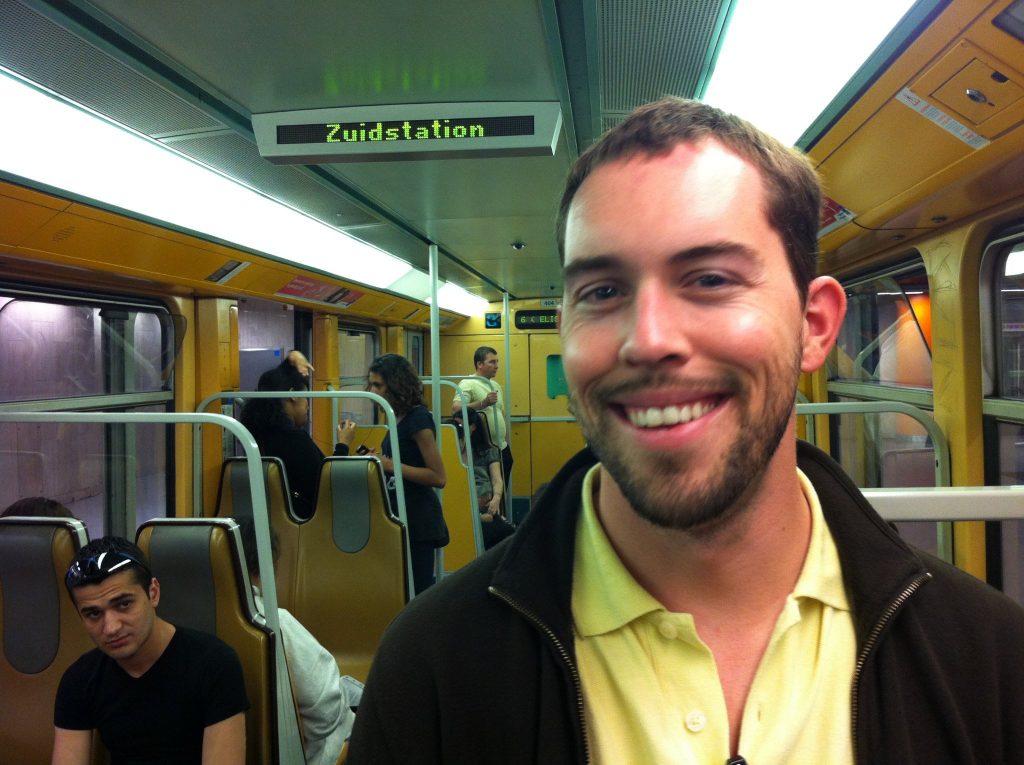
3. Additional accommodation fees, taxi fees, and/or major loss of sleep
Budget flights do not run as regularly between the destinations they serve as regular carriers do, and the flights often take place at less desirable times of day, like very early or very late.
This could mean that you’ll arrive at your destination late at night, or that you’ll take off very early in the morning. And remember, most major cities do not run their public transportation 24 hours per day.
- TOO LATE/TOO EARLY FLIGHTS
It is easy not to consider enough just how much your flight time affects the way your organize your trip. For instance, if you wanted to head out on your vacation on a Saturday morning, but there are no morning flights offered and you are left with the choice of leaving a day earlier and paying an extra night of hotel stay, or leaving twelve hours later and losing most of a day of vacation, what do you do? An extra night of hotel is not a budget option. If you added the hotel stay to what you paid for the flight, you could probably afford a non-budget flight leaving at a more comfortable time of day. - MISSING YOUR FLIGHT BECAUSE THE METRO WASN’T OPEN YET
Early morning flights can infamously depart sooner than it is possible to arrive at the airport via ground transport, or sooner than the metro that brings you to the ground transport starts to run.
My friend Lauren missed her EasyJet flight out of London for just this reason – she had afforded enough to time to get to the airport, not considering that she might have to wait for the metro to start running in the morning. Wikitravel’s London page actually has a section describing how to sleep at London Stansted airport, as so many people riding EasyJet and RyanAir have encountered this problem over the years.
With no public transport options early in the morning, your choice is to sleep for free on a bench at the airport, pay to sleep at an airport hotel, or pay for expensive door-to-door ground transport. Honestly, I don’t know about you but none of these options sound so great to me.
4. Lots of time and attention needed to meet stricter baggage and liquid requirements
If you’re flying low-cost, that probably means you don’t want to spend the money to check your bags. But take it from me – check them, and do it as in advance as possible.
Check your bags when you originally book your ticket, as that’s when you’ll be offered the biggest discount for the checked bags. You can also check them when you check-in online for less of a discount. Do not check your bags spontaneously at the airport, as they will charge you a crazy fee.
Checking your bags saves you the stress of packing. And stressing/wasting time on packing is never worth it – that and the lack of stuff you’ll have access to for your trip (because checked baggage allotments are so minimal) can quickly negate any of the positive benefits you’re deriving from your trip.
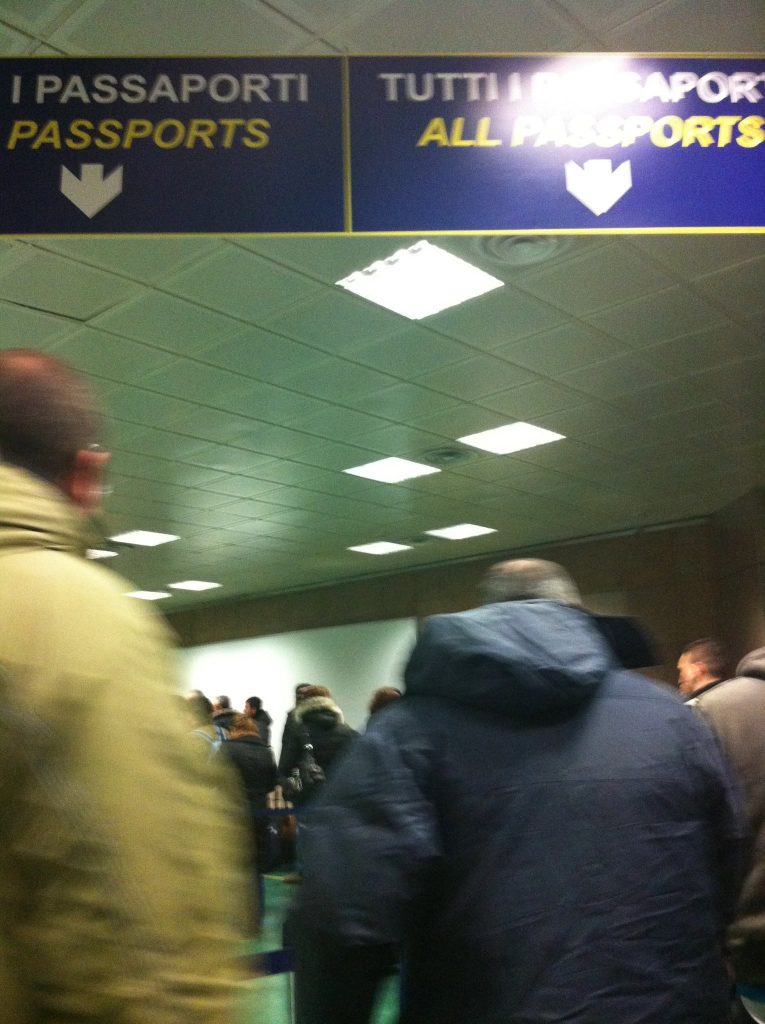
- STRICTER LIQUID POLICIES
Discount airlines are often stricter about their baggage and liquid policies in airports only serving low-cost carriers. There is no customer service mandate that prevents them from caring about making you feel like a criminal because you forgot you had Chapstick buried in the bottom of your purse, so security lines at low-cost airports are often longer and more stressful than security lines at other airports. Save yourself this stress and worry by tossing all your liquids in your checked baggage. Then you can stand in the security line worry-free (as long as you arrive early enough for your flight!). - DON’T FORGET ABOUT WINTER AND SOUVENIRS
Getting to your destination is one thing, but weathering long days being a tourist outside in winter without enough warm, heavy clothes to keep you warm because you weren’t able to fit enough in your carry-on is absolutely no fun. Also, layering is only fashionable to a point. I spent a freezing May in London pretty much wearing everything I had fit in my carry-on every day. I think the last time I was so perpetually unfashionable was in 1993. Fortunately I’m not a souvenir gal, but I know many of you are. I can assure you there won’t be space in your bag for it, and forget bringing back a bottle of wine or heaven forbid some olive oil. But if you are flying low-cost there is still a way around it. If you go crazy souvenir shopping, add a souvenir tote bag to your shopping list which will afford you more space to dump all your (non-liquid) souvenirs in the tote to carry-on, and then check your luggage in when you check-in online.
5. When you count out all the hours that go into all of the effort to take a budget airline, sometimes a bus or a train is actually a faster way to go.
If I had flown to Prague instead of taking the 14 hour bus, I would have had to take a bus to the train, to another bus, to a plane, and then to another bus.
Including all connections, airport time, and flight, it would have cost 200 euro (train and bus tickets add up quickly) and would have taken about 11 hours. Instead, for 100 euro round-trip, I got to relax on a comfortable – albeit non-luxurious – bus with phone service the whole way, frequent pit stops, super friendly drivers who gave us free water and cookies, and as much luggage and liquid as I wanted to bring. All this without a stress or worry. No delayed flights, no standing in line, great view. Loved it.
I’m making a habit out of this actually. In January I took a train from Milan to Paris, and tomorrow I’m taking the train to Munich. Another great alternative to discount airlines. You can find timetables for train travel across Europe on the German website, Bahn.
But if you really still want to fly, I understand. Just please, all I ask is remember these tips so you don’t have to suffer quite as much as me and my friends have…;)
* Kiosks may now be working better, as this occurred in 2012.

